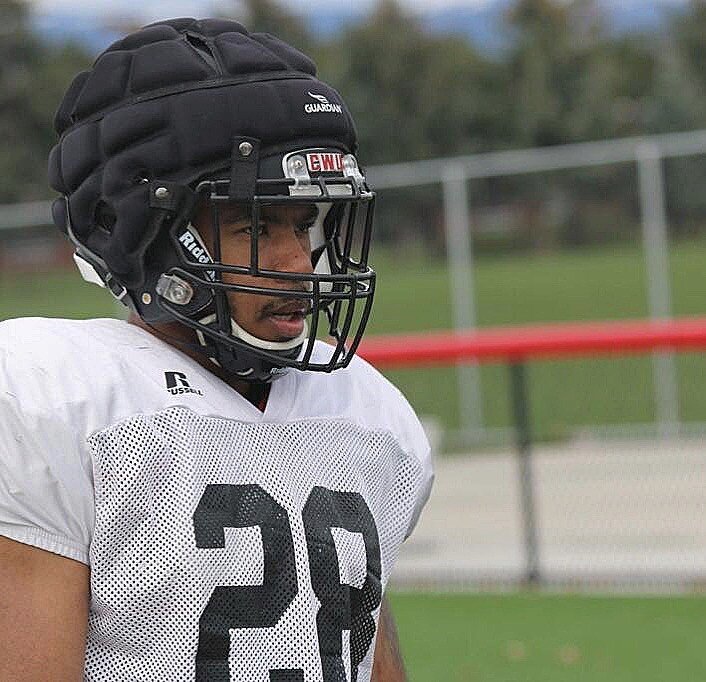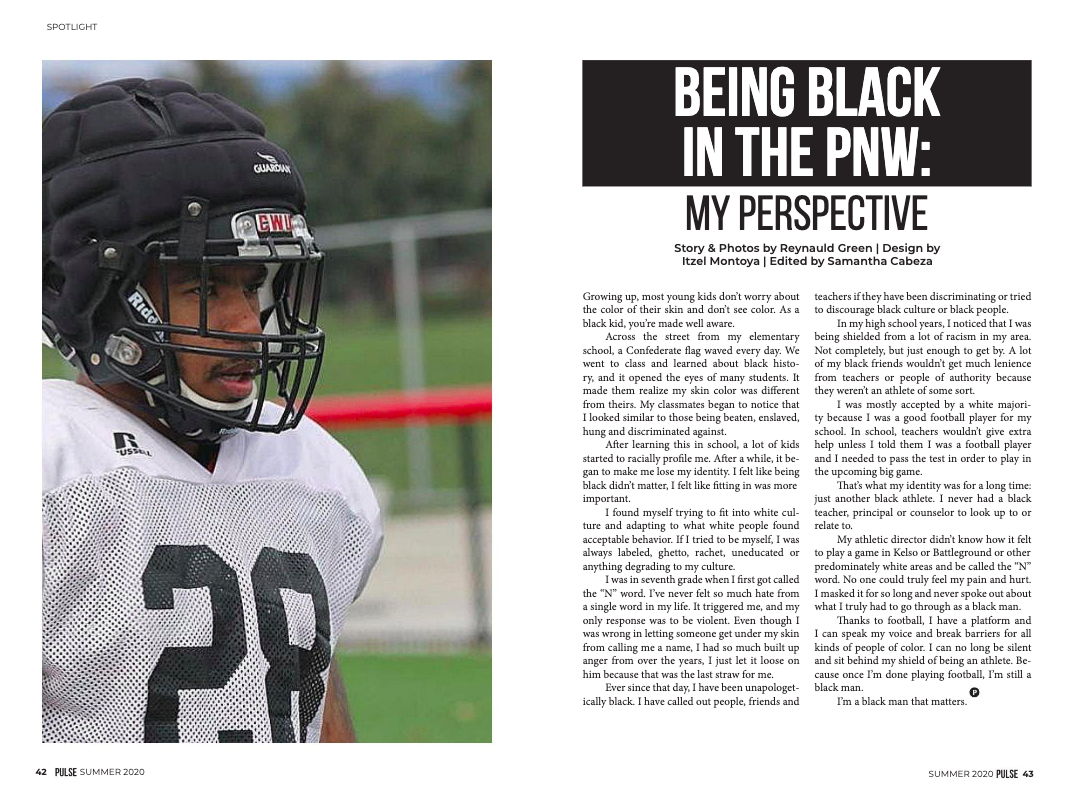Being Black in the PNW: My Perspective
Story & Photos by Reynauld Green | Design by Itzel Montoya | Edit by Samantha Cabeza
Growing up, most young kids don’t worry about the color of their skin and don’t see color. As a black kid, you’re made well aware.
Across the street from my elementary school, a Confederate flag waved every day. We went to class and learned about black history, and it opened the eyes of many students. It made them realize my skin color was different from theirs. My classmates began to notice that I looked similar to those being beaten, enslaved, hung and discriminated against.
After learning this in school, a lot of kids started to racially profile me. After a while, it began to make me lose my identity. I felt like being black didn’t matter, I felt like fitting in was more important.
I found myself trying to fit into white culture and adapting to what white people found acceptable behavior. If I tried to be myself, I was always labeled, ghetto, rachet, uneducated or anything degrading to my culture.
I was in seventh grade when I first got called the “N” word. I’ve never felt so much hate from a single word in my life. It triggered me, and my only response was to be violent. Even though I was wrong in letting someone get under my skin from calling me a name, I had so much built up anger from over the years, I just let it loose on him because that was the last straw for me.
Ever since that day, I have been unapologetically black. I have called out people, friends and teachers if they have been discriminating or tried to discourage black culture or black people.
In my high school years, I noticed that I was being shielded from a lot of racism in my area. Not completely, but just enough to get by. A lot of my black friends wouldn’t get much lenience from teachers or people of authority because they weren’t an athlete of some sort.
I was mostly accepted by a white majority because I was a good football player for my school. In school, teachers wouldn’t give extra help unless I told them I was a football player and I needed to pass the test in order to play in the upcoming big game.
That’s what my identity was for a long time: just another black athlete. I never had a black teacher, principal or counselor to look up to or relate to.
My athletic director didn’t know how it felt to play a game in Kelso or Battleground or other predominately white areas and be called the “N” word. No one could truly feel my pain and hurt. I masked it for so long and never spoke out about what I truly had to go through as a black man.
Thanks to football, I have a platform and I can speak my voice and break barriers for all kinds of people of color. I can no longer be silent and sit behind my shield of being an athlete. Because once I’m done playing football, I’m still a black man.
I’m a black man that matters.












